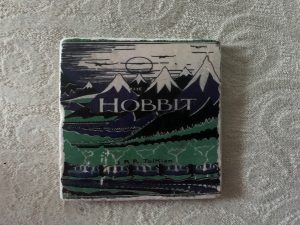movies
Transformation Stories
First, if you’re looking for cozy fantasy to curl up with on cold winter days (and nights), today (Dec. 12) is the Cozy Up With Fantasy sale, with a whole bunch of cozy fantasy reads on sale for .99. Tea and Empathy is included in this sale, and this is probably the last time I’m going to discount it until late next year, so if you haven’t tried my cozy fantasy series, this is your chance. You can find the list of participating books, with descriptions and keywords, here.
Meanwhile, we still have snow on the ground and it’s going to be a chilly weekend, so I want to start watching Christmas movies, but I never seem to actually get started watching one because I’m torn between rewatching old favorites and trying something new. My problem is that I’m very picky about these. I love the ones I love, but most of them end up making me feel just a little depressed. But I never know when watching a new one if it will be one I love that gets added to the rewatch lineup or one that will make me feel like I wasted an evening.
I’ve come to the conclusion that what I really like are the hot mess/stagnant person gets their life together (with maybe a bit of romance along the way) stories a lot more than I like the more straightforward romances, especially the career woman goes to a small town and saves the Christmas festival sort.
Looking at some of my favorites, there’s one of the earliest of these Christmas rom-coms meant for adults (vs. kid-oriented Christmas movies), The Christmas List, in which a woman whose life is stuck in neutral impulsively makes a Christmas wish list and then starts getting everything on it after her friend grabs it and sticks it in the mailbox of the Santa display in the store where they work. There is a romance, but it’s mostly about her realizing that she has the power to grant a lot of her own wishes. She just needs to put herself out there and try. I found a copy of this on YouTube last year, but I don’t know if it’s still there. I found that it still holds up pretty well (though Marla Maples as the villain is an interesting bit of pop culture from that era).
Another one I love is The 12 Dates of Christmas. There are apparently multiple movies with this title, but the one I like was on the ABC Family Channel and is a Groundhog Day type story in which the heroine relives Christmas Eve 12 times, themed on the song. This is another stagnant character who’s so stuck pining over her ex and scheming to get him back that she misses out on all the other things she could be having in life. As she relives the same day, she begins noticing and interacting with the people around her to build a community.
Although I dream of the holiday in the Cameron Diaz side of The Holiday, the story I love is the Kate Winslet side, where she learns to have gumption and be the main character in her own life from an elderly screenwriter, so she’s finally able to stand up to the guy who’s been using her.
I seem to be in the minority, but I loved Last Christmas, which is about a hot mess who learns to get over herself and see the other people around her, thanks to the intervention of someone who has a stake in her life. I think a lot of people were mad because they were expecting a romance and there really isn’t one, but I liked that it was more a vibe than a real romance since that chick was nowhere near ready for a relationship.
I love most retellings of A Christmas Carol because it’s all about the redemption arc. However, I have one big plea: Stop trying to make the Scrooge character a romantic lead. A hopeful ending in which the Scrooge is reunited with the past love and starts to make amends/show the change is fine. You could even do an epilogue showing the following Christmas after they’ve had a chance to rebuild their relationship and we can see that the transformation sticks. But it ruins the story when the Scrooge has been a jerk to the former love right up to the end, then does one grand gesture and then it ends with the Scrooge and the ex-love kissing and the implication that they’re back together for good. I’m looking at you, Ghosts of Girlfriends Past. It’s a cute movie, but the guy is such a jerk, ruins everything, then has a last-second change of heart and pulls off the grand gesture, and the ex-love whose heart he broke years ago who has been having to run damage control on his latest antics ditching the hot, kind doctor to dance in the snow with the jerk who has been reformed for maybe five minutes (and who has shown in the past that he can fake “good” long enough to get what he wants) is so outrageous that I end the movie yelling at the screen.
When I tried to write a Christmas movie screenplay and then turned it into a novella, I went with the stagnant woman storyline, where the heroine has been stuck between two “lives” in trying to play it safe and trying to have what she really wants — and then the being stuck between two lives becomes literal. It’s sort of like Sliding Doors, except she’s living each day twice, once in each potential life, and she’s aware of both lives. (Twice Upon a Christmas) This is the kind of Christmas movie/story I want to see more of. Any recommendations for one I’ve missed?

